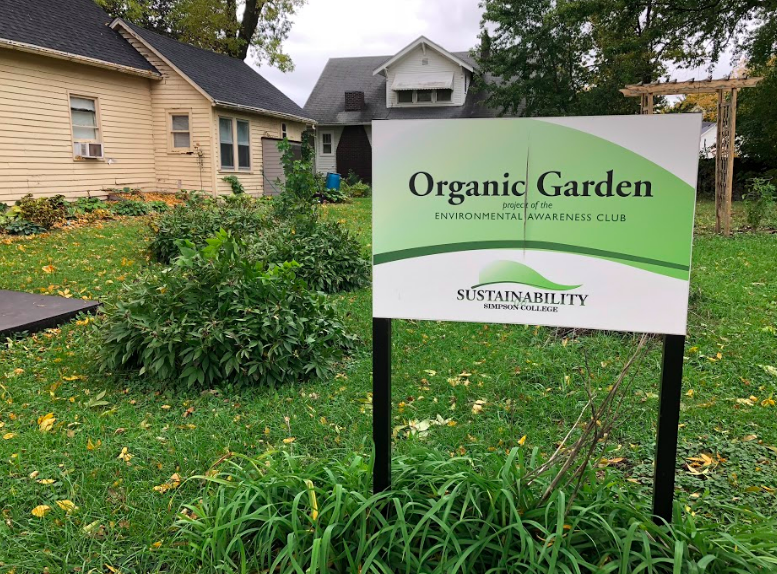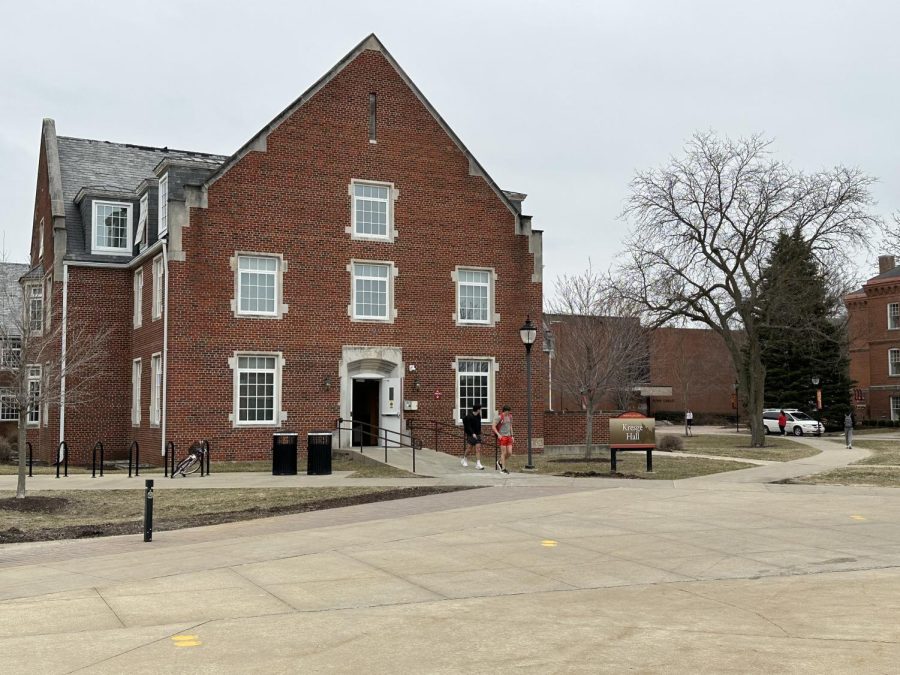Simpson’s organic garden promotes sustainability
October 11, 2018
The organic garden located on Simpson campus is an underutilized and little-known resource dedicated to reducing Simpson College’s carbon footprint.
The organic garden is located on Simpson’s campus and is a project of the Sustainability Club. The president of the Sustainability Club is junior Matt Turnley, double majoring in environmental science and management.
“The Sustainability Club at Simpson sets out to reduce the college’s carbon footprint and overall environmental impact,” said Turnley.
The organic garden is just one of the ways they set out to accomplish that.
Professor Daryl Sasser is the Sustainability Director at Simpson. The organic garden has had success in the past where a student took care of it over the summer and enough food was grown that the produce went to food banks in Iowa.
The organic garden isn’t the only thing the Sustainability Club does. Sasser said there is a beehive on campus, which is maintained by the Sustainability Club.
The garden sustained some damage over the summer from all the storms coming through campus. Hannah Matt a member of the Sustainability Club tended to the garden over the summer
“I grew tomatoes, zucchini, green beans, kale, carrots, onions, peppers, and banana peppers. I was able to give them to friends and offered people to pick their own vegetables,” said Matt.
During the summer a storm knocked down a tree completely covering the garden.
“They removed the tree, but there’s still a lot of branches and twigs out there,” said Matt.
Although the organic garden had a tree fall on it no permanent damage was sustained.
There are goals for the organic garden on campus but the main one not only for the Sustainability Club, but the organic garden is to show people that gardening is a rewarding and easy way to reduce environmental impact, said Matt.
“I want people to be aware that this is a resource they can use,” she said.
The organic garden is little-known and could be an extremely useful resource for students during the school year and especially over the summer as some students remain on campus.
The Sustainability Club tries to do things that will increase environmental impact awareness on campus and invites students get involved.
“Anyone is welcome to join or give the club ideas for future activities,” said Turnely
The Sustainability Club has achieved other goals in the past such as the bike share program and adding more water bottle refill stations on campus.
Throughout the year the Sustainability Club will upkeep the organic garden until it becomes too cold to grow produce. The members will continue to schedule events to bring awareness to environmental impact and how to mitigate that through creative and rewarding ways such as the organic garden.







